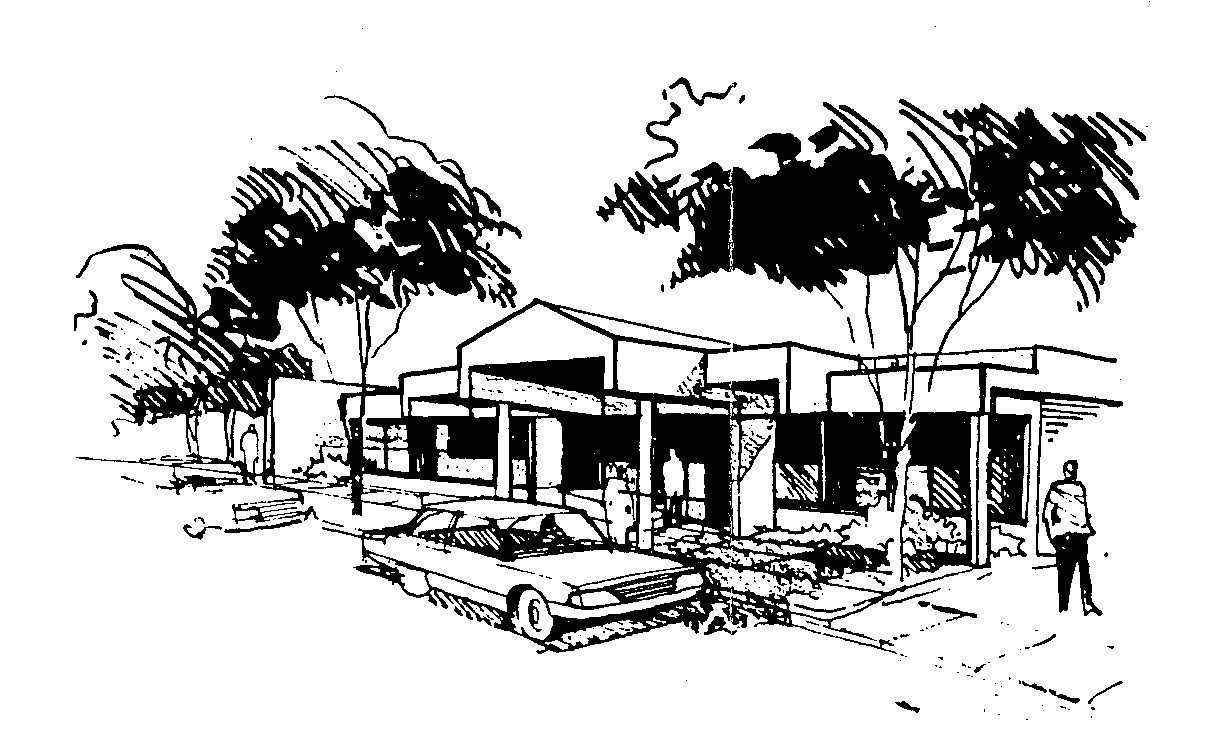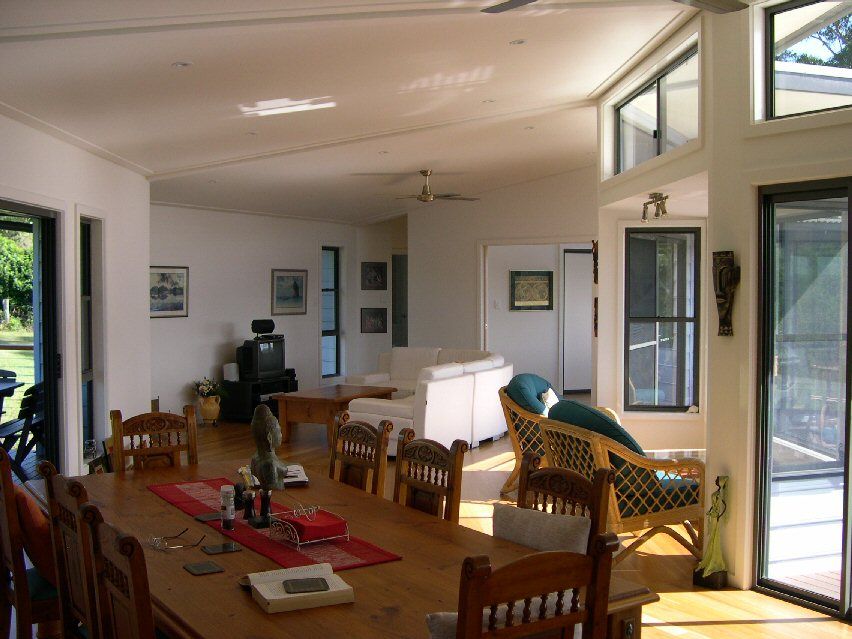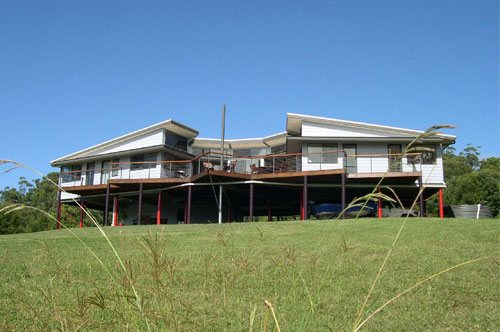
Why use an Architect?
The simple difference between using and architect or one of the construction groups is the relationship
On the one hand, the architect is professionally responsible to you, and you alone while the construction or management group is at the very least, under pressure to make a profit on the project for their shareholders, not yours.
Building organisations often depend for profitability on standardised approaches and may have links with set suppliers who may not be the cheapest or best. The result for you is another standardised building.The architects approach is to set aside time for detailed planning thought. That time and the willingness to explore new and better ideas is what separates the two approaches to construction.
Good design makes good business sense
Good design, does it really make good business sense? From our experience, definitely yes. Anyone facing a large investment in a building, be it a family home or a multi million dollar development needs to be well advised to avoid costly mistakes or oversights.Well designed spaces lead to lead to greater efficiency. They also can do a great deal for staff morale in an office structure or lead to a more enjoyable home.While resale value may be the last thing on your mind at the start of a project, good design can not only make a big difference to the price you will get. It may well be the difference between a sale or not. Architect design is definitely a plus in terms of commercial value.

But what about the cost? The cost of design is built into any project. The difference in using an architect is that you can identify that cost, control it and at the same time assure yourself of prime consideration by the designer.
The skill of an architect can allow their fees to be covered by reducing floor areas significantly by efficient design methods which is the key to cost control.
Architects fees are very small proportion of the overall project cost. This is even more the case when weighed against the savings a skilled architect can bring, the improved quality and value of your project and the security of mind from having someone else take responsibility and handle difficult situations in your best interests.
It is no accident that large business organisations who are deeply involved in construction projects form a strong alliance with their regular architect.

What an Architect can do for you
Architects are specially trained in the practical skills required to manage a complex building operation and are taught to harness their creative flair to make the most of any building project. As such, architecture is virtually unique as a profession in combining practicality with creativity.
Architects train at Universities or other Tertiary Institutions, combining periods of academic learning with practical experience in architectural practices. The Australian Institute of Architects welcomes only professionally qualified legally registered architects who are then bound by a code of ethics.
Architects have traditionally been the team leaders in the construction industry.
They use their creativity to turn the clients requirements or brief into a practical and economically suitable design, while using their management skills to provide the link between specialists such as structural engineers, surveyors, interior designers and landscape architects and the numerous different tradesmen and sub-contractors who actually carry out the building work.
The role of the Architect
It is important to realise that by using an architect you are engaging a highly trained expert consultant to look after your interests in your building project. Architects unlike many others in the consultancy industry, owe their allegiance only to you, the client. With any building project a major investment in time and money for a family or a business, having professional advice on hand is a sensible precaution.
Architects like other professionals, can be general practitioners or highly trained specialists. They all do far more than just design buildings. They handle council approvals, provide advice on cost options and budgets, provide advice on and call tenders, administer construction projects, check on the quality of materials and workmanship and ensure the building meets all legal requirements.

In the short term, they can save you time, frustration and money; in the long term they can improve the value of your investment. To get the most out of your architect, engage him or her as early as possible. Your architect can provide invaluable advise before you have purchased the land, on its suitability, any environmental or unusual site conditions, its potential and limitations.
While architects will tackle even the hardest of site problems, it makes good financial sense to be forewarned by an expert.
When you employ and architect, he or she will consider all the factors that will influence the final design. These include such matters as cost, best use of the site, relationship to the summer and winter sun, noise, maintenance, provision for future expansion, interior planning, colour schemes and furnishings and landscaping.
Once you have accepted the architects proposals, avoid changing your mind. Late changes on site after the work begins can be costly.
Seek your architects advice on your contract responsibilities with builders and contractors. Be sure you understand contracts before you sign them.
Let your architect act as your agent. Do not deal direct with the builder or other tradesmen. This safeguards you from disputes and buck passing.

Architects are specialists
Architects do not just design buildings. They also administer the construction process, provide an insight into commercial feasibility, organise environmental reports, guide development proposals through the relevant authorities and councils and provide expert advice on almost anything related to building.Their mixed academic and practical background gives them a unique insight into the problems of building and we consider it gives them a distinct advantage in a large number of areas.
The erection of building and the alteration or re-use of existing buildings has long been regarded as one of the best investments and there is no reason to believe that this trend will change significantly. But, as an investor, there may be only a few percentage points difference between a profitable construction or redevelopment project and a significant loss.
For this reason we believe that it makes a great deal of sense to engage a specialist adviser in such a venture whose task is solely to advise you on the best way of achieving your aims.
Architects are more than designers
Architects are professionals generally concerned with the design of buildings, their work bringing together creative, technical and administrative skills with an understanding of people and their requirements, whether a small house or a multi-million dollar tourist development. The architect usually has the leadership role in the construction industry and acts as a co-ordinator for a wide range of other professional consultants including services engineers, quantity surveyors, interior designers and landscape architects. The design and construction of buildings is often a very complex and time consuming process involving many different skills.

